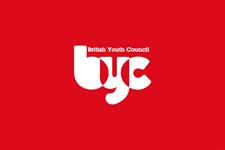The British Youth Council, a major youth voice charity, is closing after more than 75 years due to “ongoing financial challenges”.
BYC is a youth-led charity that encourages young people under the age of 25 to get involved in their communities and democracy locally, nationally and internationally.
It was set up by the Foreign Office in 1948 but became an independent charity in 1963.
Announcing its closure, Zara Khan, chair of BYC, said the decision came as “ongoing financial challenges have resulted in insolvency”.
She said: “Despite our best efforts, we have been unable to provide a sustainable future for the charity. The economic environment has significantly impacted our ability to generate income.”
Khan added that the financial difficulties were “further cemented by the recent administration of our dedicated and passionate partners The Body Shop”.
The charity had a total income of £825,671 for the financial year to the end of March 2022, according to its latest accounts available on the charity register.
Income from The Body Shop, which went into administration in February, accounted for £25,880 of this.
A large portion of the charity’s 2021/22 income came from the Department for Culture, Media & Sport, which totalled £274,950 in statutory funding.
The accounts added that its reserves position for the 2021/22 financial year was below target, accounting for about four weeks of operating costs. As of 31 March 2022, its reserves stood at £83,388 but about £308,000 was needed for the 2022/23 financial year.
Nobody responded to questions from Third Sector about how many people stand to lose their jobs and the timeframe for the charity’s closure.
According to these accounts, the charity had an average headcount of 19 employees in 2021/22.
Khan added that the charity will “work with partners and the UK government to secure the legacy and future of our programmes as much as possible”.
BYC’s flagship programmes include the UK Youth Parliament, the Youth Voice programme and the Youth Select Committee.
Khan said: “We’re proud of the relentless work we’ve done which has seen us engage millions of young people throughout our history, and we know we leave behind a legacy of impact on the lives of countless people who have been able to find their voice and improve the lives of others in the UK and across the world through our international work.
“We would like to thank our dedicated staff team, volunteers, partners and funders, past and present, who have made our work possible. We can be proud of our joint efforts to ensure young people are empowered to bring about social and political change in their communities.”
The charity is yet to confirm a timeline for its closure, but Khan said that BYC is beginning preparations to cease operations.
Ndidi Okezie, chief executive of the youth voice charity UK Youth, said the closure came as “deeply sad news”, adding: “The British Youth Council has led the UK Youth Parliament, providing opportunities for young people aged 11 to 18 to use their voice to bring about social change with important campaigns such as calling for universal free school meals, an end to plastic pollution and support for young people’s mental health. This is vital work that must continue.
“Coming so soon after the demise of Children England, the closure of BYC spotlights the economic challenges the charity sector around young people is facing at this time. And this is on top of the financial crisis gripping councils across the country, many of whom have taken to cutting and axing youth provision to save money.
“We urge the government, business and society as a whole to increase investment in young people through quality youth work, for the benefit of the whole population.”
Mollie McGoran, chair of the youth voice charity the Scottish Youth Parliament, said: “The closure of our friends and partners at the BYC is deeply sad news and on behalf of SYP, our thoughts are particularly with the board, staff and young people involved.
“SYP has had the privilege of working alongside BYC for over 20 years. The closure of BYC marks the loss of one of the key outlets young people across the UK can use to make their voice heard and hold decision-makers to account.”
